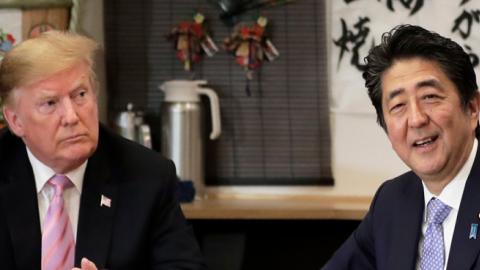People often say the center of gravity in American foreign policy has shifted to the Indo-Pacific. But what exactly does that mean for America’s alliances and priorities? Many Americans have been slow to understand the critical importance that Japan now plays in American strategy. Australia, Vietnam, Taiwan, Indonesia, Singapore and the rest all have roles to play, but without the economic, political and military assets Japan brings to the table, America’s Asia policy cannot succeed.
Fortunately for the U.S., Japan is committed. Japanese policy makers by and large understand that China’s rise is a global challenge perhaps on the scale of the Cold War—and that Japan is in the path of the storm. The country cannot defend its security and independence without a strong and effective alliance with the U.S.
The Trump presidency has in some ways fortified the relationship. The greater attention to the Indo-Pacific, the military buildup and the more aggressive approach to China on both trade and geopolitical issues are widely applauded in Japan.
Read the full article in the Wall Street Journal "here":https://www.wsj.com/articles/china-and-trump-are-making-japan-nervous-1…


















